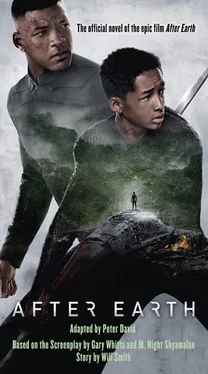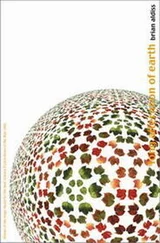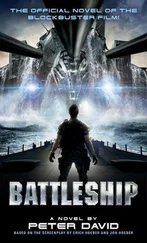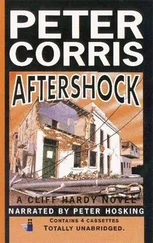As he stopped his climb, he saw in the distance, atop a hill, the enormous tail of the ship. The once-proud ship now reflected the sunshine, a beacon of hope. Between it and Kitai, there was a scorched area of open flat terrain, a path to salvation. He grinned. Then he coughed, a reminder that time was running out.
Kitai lowered himself quickly, dropping the last few meters, and then, without pause, began jogging toward the path.
Each step was accompanied by a cough, and soon the movements were joined by a wheeze that hurt. He couldn’t control it, and the sound grated against his ears. He felt like a sickly boy despite being in peak physical condition. Well, he had been that before the ship crashed. Now he felt like anything but a Ranger. What kept him moving was that every step brought him closer to the Hesper and its precious contents.
Working his way up the hill sapped the last of his energy reserves, reminding him of how hungry he had grown, and the wheezing made him thirsty. He wanted to rest but knew he dared not stop. He kept walking, and as he drew within a hundred meters of the wreckage, he stumbled. Falling to the ground, he began the worst bout of coughing yet. Kitai couldn’t breathe, couldn’t catch his breath, and if it hurt before, it was excruciating now. Hands clutched his chest, unable to open the lifesuit, rip through skin and bone, to help his lungs find fresh air.
Choking, he steeled himself and reached down deep. He filled his mind with determination and raised his head, focusing only on the Hesper . One arm covering his mouth, he rose once more to his feet and stood. Certain he would not topple over, Kitai resumed his pilgrimage.
The ship loomed large in his vision, but Kitai had grown dizzy, his breath coming in torn strips. He felt hot without sweating, and his chest was heaving. He was out of options, out of luck, and so close to his target that he felt cheated of his victory.
On his knees, he moved among the debris, eyes desperately scanning for salvation. He grew desperate, hands getting cut on the sharp edges of torn, twisted metal. He needed one thing to survive, and it was proving elusive. The dizziness was affecting his vision, and he was certain he would pass out in moments. Light and dark merged, blurring his ability to see, and he found it difficult to remain steady. Thoughts of simply surrendering to the inevitable fought with his instinct for survival, but willpower could fight his body’s physical needs for only so long.
As Kitai was about to topple over, his vision cleared enough to spot a damaged, shredded med-kit. Going more by touch than by sight, he rummaged through the remains of the kit until his fingers grazed a familiar object: an entire pack of the breathing gel. A final surge of adrenaline allowed him to open the packaging, although his fingers fumbled badly. Awkwardly, he grabbed the inhaler and placed it over his lips.
Almost instantly, his lungs stopped aching. He could draw a breath without pain or wheezing. It felt terrific.
As his body adjusted to being normal once more, he ingested a second dose. Too exhausted to do much more than breathe, Kitai fell onto his back, taking in deep lungfuls of air, enjoying every one of them. And then, like a chill in winter, it dawned on him: He was sitting in the spot the Ursa pod once had occupied.
If the Ursa wasn’t here… where was it?
Cypher Raige had had better days. Slumped in his chair, he dimly recognized that he was delirious. Images of his career played before his mind like an entertainment vid. Great battles, tremendous loss, and everywhere he looked, the Ursa were scuttling across his planet. No matter how many he killed, there were more. They were shredding Rangers, crawling through his family’s windows. One killed his daughter. There was blood everywhere.
He continued to feel helpless and alone, uncertain if Kitai was alive or dead. He desperately wanted to believe the boy was still on the mission, but the odds were stacked high against them both.
What Raige could not see was the medical screen’s readouts indicating how much blood he had lost. A red warning light indicated that blood transfusions were needed. Another readout showed that his potassium, creatinine, blood urea nitrogen, and myoglobin levels were off the normal charts. Warning lights flashed, summoning medical assistance that was not forthcoming.
Yet another screen Cypher could not see indicated that the arterial shunt had failed completely. The computer offered one final option: IMMEDIATE MEDICAL TRANSPORT.
With half-open eyes, Cypher roused himself from the images of war at home to see the battle his body was waging—and losing—against death. He saw the alert for transport and thought that was a lovely idea. Completely impossible but a nice idea nonetheless.
His only hope remained in the hands of his teenage son, far from him on the quarantined planet Earth, searching for the proverbial needle in a haystack. Cypher found himself drifting, remembering Kitai as a boy.
Suddenly, Cypher was in the old apartment again. Three-year-old Kitai was marching around in his pajamas and his father’s huge boots, struggling to hold Cypher’s cutlass.
“Those lines are tight, son,” Cypher said approvingly.
Kitai beamed with pride. As Faia captured the scene with her camera, Kitai hugged his father.
Cypher hugged him back. “And now it’s time for one junior officer to head off to bed.”
“Noooo—” Kitai protested.
“That’s a direct order from a superior officer, son,” Cypher told him.
The little boy straightened up and gave him a salute. Cypher leaned down and talked seriously to his son.
“We never disobey an order,” he told Kitai. “Not at home, not when deployed.”
“Yes, sir!” Kitai snapped.
“And give your mother a kiss, tell her you love her.” He cast a glance at his wife. “One day I’m just going to be ‘Kitai’s dad.’”
One day , Cypher thought as he sat there in the cockpit of a ruined ship and watched his son suffocate in the oxygen-poor air. His son was a Raige. Possibly the last in the family line, but he was a Raige. And a Raige never gave up.
So he would not— could not —give up on Kitai.
Refreshed but still hungry, Kitai rose to his feet and continued his search through the wreckage to find the homing beacon that would summon help and save his father’s life. His father had explained exactly where to look and there were pictograms on the sides of various stations, and so he knew the exact size and shape of the space where the homing beacon should be. But there was so much twisted, torn metal and material that he began to doubt anything was where it should be.
Moving around, he allowed himself to take in the remains, missing the crew members who had plunged to their deaths. Against a far wall, he spotted a set of cutlasses, the C-40 model that he coveted using.
The one he had taken from the forward portion of the crippled ship, his father’s own weapon, was gone. Either lost in the stampede or jarred lose as the condorlike creature dragged him to safety. But that speculation didn’t matter now. Kitai grabbed a fresh weapon, checked it for damage, and affixed it to his backpack.
Having the weapon reminded him that it had been created to deal with the Ursa and that he had yet to verify what had become of the one the ship had been carrying.
He walked with purpose toward chunks of debris farther from the tail and soon found the pod that once had fascinated him in the cargo hold. Resting on its side, it sat crushing large fronded plants.
He snapped the cutlass to life, and it extended to its three-meter length, a soft hum filling the quiet, cooling air. The yellowish pod that had once contained the captured Ursa that the security chief had named Viper was shattered. The gel that inhibited the Ursa’s pheromone-locking ability was splashed everywhere. Pieces of the organic shell were strewn about, as were the binding straps, which lay on the ground.
Читать дальше












